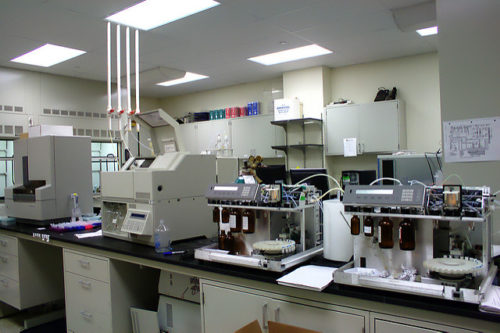
February 2, 2017; Atlantic
“Neuroscience lab: systems electrophysiology/imaging. Desk and some lab space, access to facilities and help with finding accommodation.”
“Proteomics, genomics, protein homeostasis lab; bench and desk; access to equipment; assistance in finding housing
“Toledo is 30 min from Madrid in train. At the Faculty of Environmental Sciences and Biochemistry we have a Plant Molecular Biology Lab. We offer bench, growth chambers and other equipment, consumables, computer, etc. Housing in Toledo is inexpensive. We can also help finding living places in Madrid.”
What are these odd listings?
Sign up for our free newsletters
Subscribe to NPQ's newsletters to have our top stories delivered directly to your inbox.
By signing up, you agree to our privacy policy and terms of use, and to receive messages from NPQ and our partners.
On Saturday, Samira Asgari was boarding a plane in Frankfurt en route to Boston where he was to start a postdoctoral fellowship on tuberculosis when he was stopped and prevented from boarding—and he is among perhaps thousands of scientists so treated as a result of the United States’ recently imposed temporary travel ban affecting citizens of seven Muslim-majority nations.
Two Austrian-based scientists began mulling over on Twitter how to host the stranded scientists in laboratories where they could continue their work, but the movement to provide refuge has moved beyond individual commitments. In Portugal, the Gulbenkian Institute declared it would “provide what aid we can to scientists trapped by [the immigration ban].” The Brain and Spine Institute in Belgium vowed it was “ready to welcome all our colleagues who are in France, in Europe, and who need a place of reception during this difficult period.”
Shortly thereafter, Maria Leptin, the director of the European Molecular Biology Organization (EMBO), decided to help organize the offers. “I felt that words are one thing, but we need deeds,” she says. “I thought: ‘Let’s get people together and do it in a big way.’” Ed Yong of The Atlantic calls EMBO “the perfect organization for it; it’s a prestigious network of European biologists, and one of its goals is specifically to ‘enable international exchange between scientists.’”
This self-organized effort is now called the Science Solidarity List, a register of “scientists offering temporary bench or desk space, library access and possibly even accommodation for U.S.-based scientists who are stranded abroad.” At last report, there were almost 600 offers like the three listed above from 31 nations, including not just European countries but also Canada, Israel, Australia, Japan, Saudi Arabia, Mexico, Singapore, India, Brazil, and China.
“This has obviously struck a nerve,” says Leptin. “[The immigration ban] contravenes anything that science stands for, the international spirit of science. We feel sorry for the scientists who are affected, and all the labs in the U.S. who don’t want this.”—Ruth McCambridge













